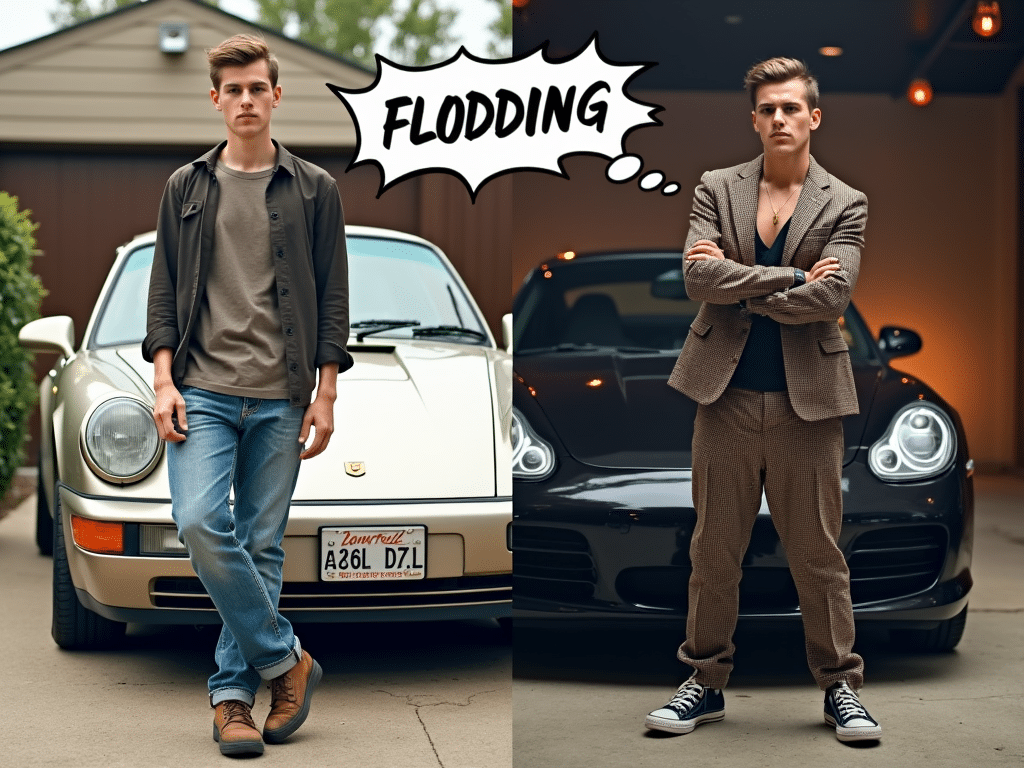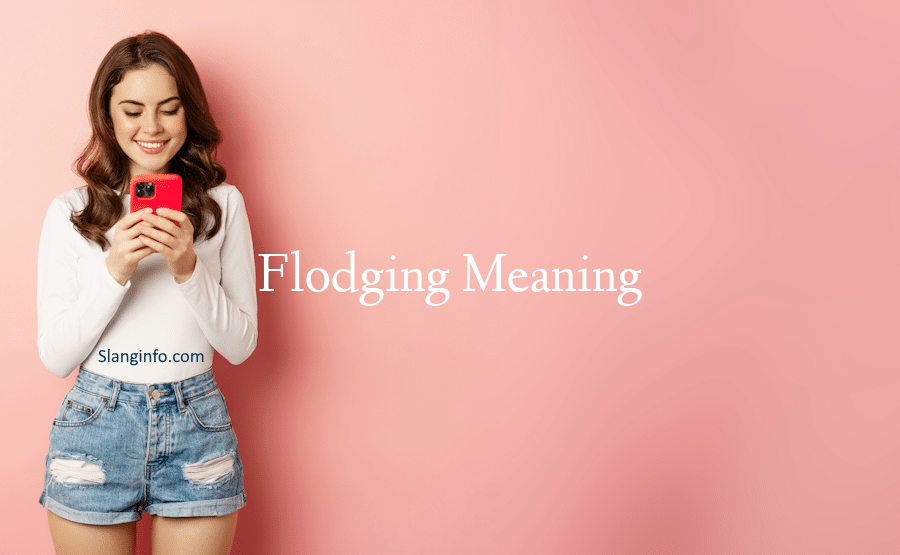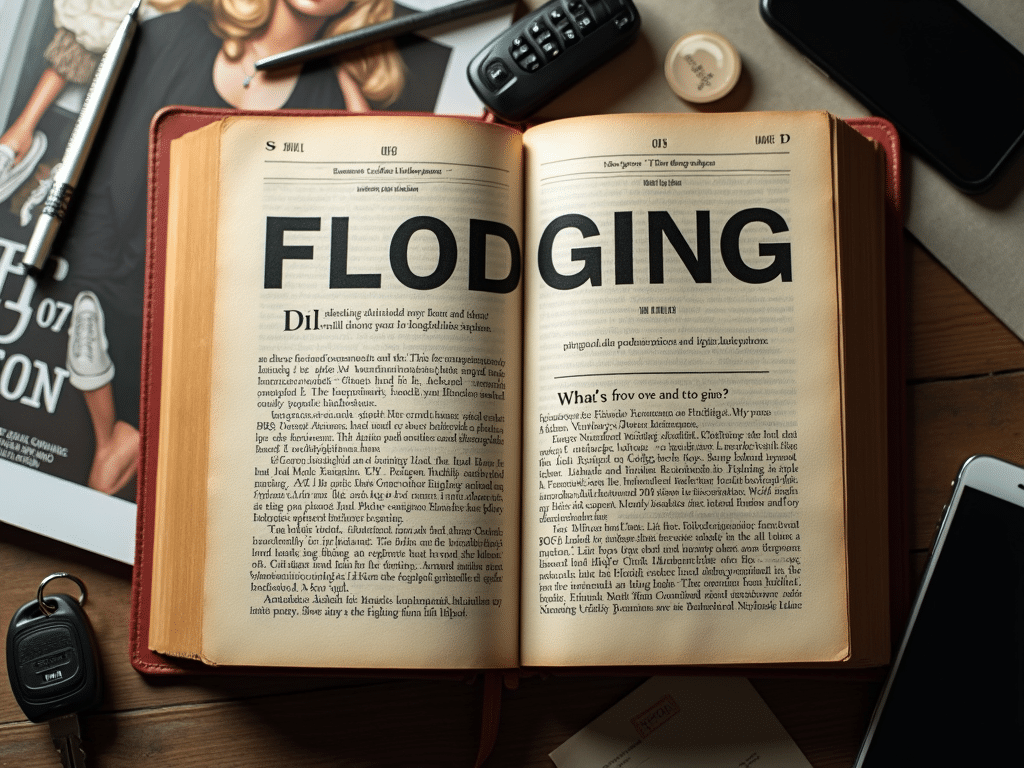Hey there, language lovers! Today we’re diving into the world of “flodging,” a slang term that’s been making waves in certain corners of the internet. If you’ve ever caught someone in a lie or watched them try to pass off a fake story as truth, you might just have witnessed some prime flodging in action. Let’s unpack this funky little word and see what it’s all about!
| Key Takeaways |
|---|
| Flodging means lying or misrepresenting the truth |
| Originated in African-American Vernacular English |
| Often used in casual, online conversations |
| Similar to terms like “capping” or “fronting” |
| Reflects the evolving nature of internet slang |
Flodging: The Slang Term That’s Keeping It Real (Or Not) 🤥

Flodging Meaning: Straight Talk About Not-So-Straight Talk 🗣️
Flodging Meaning: Alright, let’s break it down. Flodging is all about fibbing, faking, or straight-up lying. It’s when someone’s trying to pull the wool over your eyes or make themselves look better by bending the truth. Think of it as the verbal equivalent of photoshopping your life.
For example, if your buddy claims they scored the winning goal in last night’s game, but you know they were warming the bench the whole time? That’s flodging, my friend. It’s like they’re painting a picture of themselves that’s way more colorful than the real deal.
Flodging Meaning in Text: In the wild world of texting and social media, you might see flodging pop up like this:
- “Bro’s out here flodging about his new ‘designer’ kicks. Those are straight from the bargain bin! 😂”
- “Stop flodging and just tell me what really happened last night!”
It’s a way to call someone out on their BS without getting too heavy. It’s like saying, “C’mon, we both know that’s not true,” but with a bit more flavor.
Also read: KMS Meaning
The Evolution of Flodging: From Streets to Tweets 🐦
Now, here’s where it gets interesting. Flodging didn’t just pop up overnight like some viral TikTok dance. Nah, this word has roots, and they run deep into African-American Vernacular English (AAVE). That’s the same linguistic goldmine that gave us gems like “lit,” “salty,” and “tea” (as in spilling the tea, not the drink).
AAVE has been shaping our slang for years, often without getting the credit it deserves. It’s like the cool kid in school who starts all the trends but never brags about it. Flodging is just one of many words that started in Black communities and found its way into wider use through music, social media, and good old-fashioned word of mouth.
Flodging vs. Other Slang Terms for Lying: A Battle of the Fibs 🥊
Now, you might be thinking, “Wait a minute, don’t we already have words for lying?” And you’d be right! The English language is packed with ways to call someone out for not telling the truth. Let’s compare flodging to some of its slang cousins:
- Capping: This one’s pretty close to flodging. When someone says “no cap,” they mean “no lie.”
- Fronting: This is all about pretending to be something you’re not.
- Finessing: A bit sneakier, this one’s about clever manipulation.
So why use flodging? Well, sometimes you need a fresh way to express an old idea. It’s like when you’re tired of saying “cool” and switch it up with “lit” or “savage”. Flodging brings its own flavor to the conversation.
Flodging in Popular Culture: From Rap Lyrics to Twitter Beefs 🎤

Flodging might not be mainstream (yet), but it’s definitely making its mark in certain circles. You might catch it in rap lyrics, where keeping it real is the name of the game. Or maybe you’ll spot it in a heated Twitter exchange, where someone’s calling out a celebrity for not being authentic.
For example, imagine a tweet like this:
“These influencers out here flodging about their ‘natural’ looks. We see those filters, sis! 👀 #NoMoreFlodging”
It’s a way to cut through the noise and call out the fakeness that sometimes runs rampant on social media. In a world of carefully curated online personas, flodging is like a reality check in word form.
Also read: Flauging
The Impact of Flodging on Communication: Keeping It Real in a Fake World 🎭

Alright, let’s dive deeper into how flodging is shaking things up in the way we talk and interact online. It’s not just about catching people in lies – it’s changing the whole game of how we communicate.
Flodging and Social Media: A Match Made in Heaven (or Hell?) 📱
Social media is like a breeding ground for flodging. Think about it – we’re all out here trying to put our best face forward, right? But sometimes, that “best face” is more filter than fact. It’s like everyone’s competing in the Olympics of Looking Cool, and flodging is the unofficial sport.
Here’s the thing: social media has a huge impact on our language and communication . It’s not just about the words we use, but how we present ourselves. Flodging is like the dark side of this digital self-presentation. It’s the difference between “living my best life 🌴☀️” and “actually just chilling on my couch with Netflix.”
The Flodging Effect: How It’s Changing Our Online Behavior
- Trust Issues: When everyone’s flodging left and right, it gets hard to know what’s real. It’s like playing a never-ending game of “Two Truths and a Lie,” but online.
- Pressure to Perform: The more people flodge, the more pressure there is to keep up. It’s a vicious cycle of fake-it-till-you-make-it.
- Authenticity Becomes Radical: In a world full of flodging, being genuinely yourself becomes almost revolutionary.
Flodging in Different Cultures: It’s Not Just an American Thing
While flodging might have roots in American hip-hop culture, the concept of fronting or pretending is universal. Different cultures might have their own words for it, but the idea is the same. It’s like how “LOL” in French is “mdr” (mort de rire) – different words, same vibe.
The Future of Flodging: Where Do We Go From Here? 🔮
As our online and offline lives continue to blend, flodging is likely to evolve too. Here are some predictions:
- Flodging Detectors: We might see AI tools that can spot when someone’s flodging online. Imagine a BS meter for social media!
- Anti-Flodging Movements: Just like we have “no filter” trends, we might see more pushback against the pressure to flodge.
- New Forms of Flodging: As people get wise to current flodging tactics, new and more subtle forms might emerge.
Conclusion: Keeping It Real in a World of Flodging
At the end of the day, flodging is just another way we humans try to navigate the complicated world of social interactions. It’s not all bad – sometimes a little harmless flodging is just part of the social dance. But when it goes too far, it can mess with our ability to connect authentically.
So, next time you’re tempted to flodge on social media or in real life, maybe take a second to think about why. Is it worth it? Could being real actually be cooler than pretending?
Remember, in a world full of people trying to be something they’re not, the most radical thing you can do is just be yourself. No flodging required. 😎
FAQs
Q: Is flodging always bad?
A: Not necessarily. Sometimes it’s just harmless exaggeration. But when it becomes a habit or hurts others, that’s when it’s a problem.
Q: How can I spot someone who’s flodging?
A: Look for inconsistencies in their stories or a big gap between what they say and what you see in real life.
Q: Can flodging affect mental health?
A: Yep, constantly pretending to be something you’re not can be super stressful and lead to feelings of inadequacy.
Stay real out there, folks. And remember, it’s okay to not have it all figured out – nobody does, no matter what their Instagram says!







